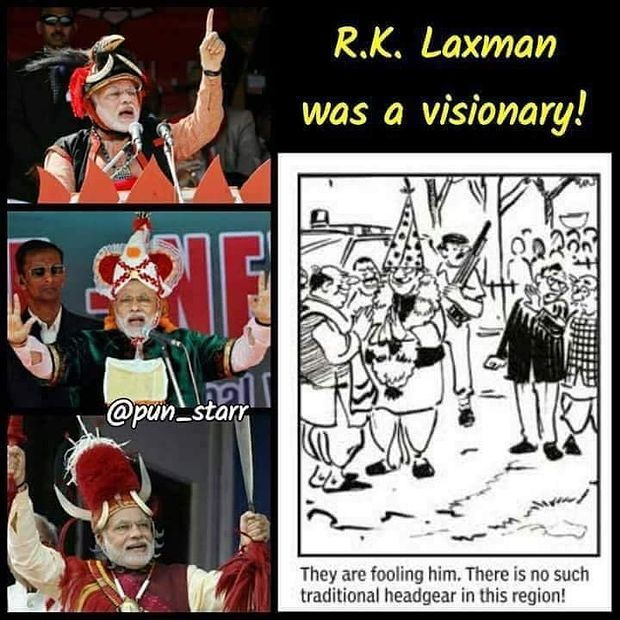Criticism & Praise
- prempothina
- Oct 16, 2021
- 5 min read

David Brinkley, an American, was not only a famous Newscaster for NBC but also a co-anchor, a commentator and an author of books (even though only a few, they were very popular). He once said, “A successful man is one who can lay a firm foundation with the bricks others have thrown at him.” Bricks or brickbats is the metaphor used for criticism, which is liberally hurled at us by our near, dear, far and the general public, whereas praise or appreciation is usually in the form of pampering by loved ones who, in most cases, are one’s parents, But this is also seen in the form of flattery by certain beneficiaries. Of the two, it’s the ‘praise’ that is damaging and not criticism. Praise or acclaim for unparalleled services and exalted thinking is what we see very rarely of undisputed and iconic characters only.
Those remarks, even though unfavourable to us, should be captured when hurled at us and examined. A plethora of criticism has invaded our lives and we impulsively respond without composure. Criticism succeeds in provoking our senses, inciting our emotions to generate a reaction instantaneously, and whatever retaliation — whether subtle or harsh — will eventually result in damage. Whereas with an honest examination, if wisdom prevails upon the criticised person, he can easily analyse some truth in it and the result is priceless. The wise person will discard prejudiced criticism silently without any response and take those that give him cause to repair his weaknesses. In my youth, I used to react to all subtle and blatant criticism alike, usually ending in rifts.

One can easily differentiate a ‘hate-speech’ from constructive criticism, for seemingly the criticism goes overboard and the critic flushes out all his hidden prejudice. A good critic does not travel beyond the subject matter and will never share the critical subject with others. I have a great regard for Sir Winston Churchill who guided Great Britain and the Allies through the crisis in World War II, but his comment on Mahatma Gandhi does not complement his stature. Churchill called Gandhiji "a seditious Middle Temple lawyer, now posing as a fakir... striding half-naked up the steps of the Viceregal Palace." Churchill was unhappy about Gandhi's participation at the Second Round Table Conference in London in 1931. Evidently, it was a racial comment prejudiced by the fact that the Mahatma earned more popularity than any leader in the world during the turbulent times of war with his ‘Non-Violence’ movement, which ultimately drove the British out of India.
Wherever Gandhiji toured during that trip in 1931, Britishers thronged to be photographed with him and sought his autograph. Of course, in Britain, people such as Churchill might be prejudiced, but in the USA, legendary physicist Albert Einstein, who gave the world the Theory of Relativity, was in awe of Gandhiji’s philosophy. He had once stated, “Generations to come will scarce believe that such a one as this ever in flesh and blood walked upon this earth.” Hence, all that ‘hate-speech’ of Sir Winston Churchill has no place in history at all. In the same manner, one needs to practice or harness his mind to not get into the deluge of scathing attacks. The character of the critic is unraveled by the quality of criticism made by him.

With social media and news channels drawing all classes of people into the quagmire of ‘criticism’, nowadays, the business entities such as restaurants, hotels, clubs and so on are seeking the comments of their customers by way of ‘feedback forms’ to be filled in. Even our country’s leading airline, Indigo, requests for feedback from its passengers within an hour or two of landing. I agree that the practice of inviting criticism to improve the services rendered is definitely appreciable. Criticism of new-age writers is quite harsh, their pens swaying from left to right merely to attract the readers with a controversy.
Cartoons are a form of criticism. In the earlier days, there were many intellectual cartoonists such as the legendary RK Laxman, whose ‘The Common Man’ cartoon on the front page of The Times of India was anxiously awaited by every daily newspaper reader in the country and it had a subtle message to the polity that ruled India. RK Laxman was a genius visionary for his messages were both political and social, with bold criticism but subtle. The criticised should also introspect and face the criticism boldly and not sink their heads in the sand like an ostrich as if it’s just on the lighter side and that it doesn’t matter. Underneath every subtle criticism there is a message for one to make corrections to his conduct or act. They are all constructive criticisms without drawing any ire from the criticised. I also was a fan of Mario Miranda whose cartoons in the then ‘The Illustrated Weekly of India’ were hilarious and felt worth waiting for.

One of my favourites on the subject of ‘praise’ or ‘flattery’, to be more precise, has been wonderfully depicted by the famous duo of the Telugu film industry — cartoonist Bapu and writer Venkataramana — in the Telugu film ‘Mutyala Muggu’. The story line is based on the Ramayana where the arch villain or the de facto Ravan, played by the illustrious Rao Gopal Rao in the role of an organised Don who takes up all sorts of contracts of crime from his clients. His secretary, with some premonition that the crime branch might send undercover agents to trap him, engages musicians to play the drum whenever anyone needlessly flatters the Don. This ‘music band’ alarm keeps the Don in his senses and he demands his client to state their assignment and not to beat around the bush. This innovative alarm concept, even though subtle, in criticism has created an impact than any harsh criticism on such people who fall for flattery.

One who looks for appreciation is treading into a trap. In my life experience, it is criticism that has nurtured me more than appreciation. Since childhood, I used to view all my critics with animosity. It was only later, when I had reached a stage where I subdued the criticism with my achievements and earned respect, that I realised that those remarks acted as fuel to my perseverance. I realised that ‘had such critical comments not been made against me, would I have reached this stage?’. It is not only in my case but criticism works well for those who have the inherent character to evolve with an insight. Criticism chisels champions.
Until now, very few have spared me without criticism, whether they were near, dear or other, and I do credit my success to all the critics for without them I would have been a pampered fool. I consider criticism as a wake-up call and critics as friends; it is the criticism that is to be avenged and not the critic.



"It is the criticism that is to be avenged and not the critic"
You nailed it.